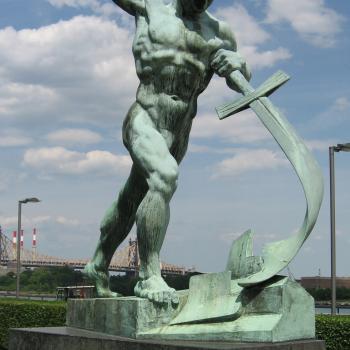 For years now, the U.S. government and the European Union have been accepting social media networks–such as Facebook and Twitter made possible by the Internet–as “passive platforms” irresponsible for their users’ content due to the guaranteed right of free speech characteristic of western democracies.
For years now, the U.S. government and the European Union have been accepting social media networks–such as Facebook and Twitter made possible by the Internet–as “passive platforms” irresponsible for their users’ content due to the guaranteed right of free speech characteristic of western democracies.
Not any more. It’s mostly because both the EU and USA intelligence agencies have determined that Russian government operatives influenced the outcomes of the 2016 U.S. presidential election and Brexit for the purpose of creating chaos and achieving their own desires as to winners.
 U.S. Congressional committees held hearings earlier this year about this Russian meddling, and a UK Parliament committee did too regarding the UK’s referendum to secede from the European Union (=Brexit). Both interviewed Facebook founder and CEO Mark Zuckerberg. The UK’s Parliament committee was unsatisfied with Zuckerberg’ response even though both Facebook and Twitter are now trying diligently to make improvements such that it resulted this week in a huge drop in their stock prices.
U.S. Congressional committees held hearings earlier this year about this Russian meddling, and a UK Parliament committee did too regarding the UK’s referendum to secede from the European Union (=Brexit). Both interviewed Facebook founder and CEO Mark Zuckerberg. The UK’s Parliament committee was unsatisfied with Zuckerberg’ response even though both Facebook and Twitter are now trying diligently to make improvements such that it resulted this week in a huge drop in their stock prices.
The UK Parliament’s committee just issued a report about its conclusions. This report calls for such social media companies to henceforth be held responsible for their users and advertisers promulgating “FAKE NEWS” or anything else that is damaging to society. This report declares, “Social media companies cannot hide behind the claim of being merely a ‘platform.'”
This report recommends that this industry henceforth be treated more like television and radio. It calls for sweeping new regulations of social media. It recommends that a “working group of experts” be established to police these networks as to their truthfulnes, even grading them as to their credibility for the benefit of users. It advises that the expenses of this group be paid by taxes levied against these networks. This report calls for stiff penalties for breaking the regulations based on a fixed percentage of the network’s monetary value. This report also recommends that all social media advertising sources be publicized, which I think Facebook is now putting into place.
This UK Parliament committee says these clandestine, electronic efforts by Russia to influence the Brexit vote appear to have been substantial. The committee’s report says just two of the Kremlin’s English-language social media outlets–Sputnik and Russia Today–published 261 articles on Facebook and Twitter (I think it was) prior to the Brexit vote. The report says the number of voters reached with this propaganda was quite high and thus alarming. Since the Brexit vote was very close, I guess it is conceivable that Russia may have caused the UK to secede from the EU, which Russian President Vladimir Putin most certainly wanted to happen. The main reason is that it would not only weaken the EU but also NATO.
In conclusion, it appears that these social media networks are going to be increasingly regulated unless they satisfactorily to job themselves.












